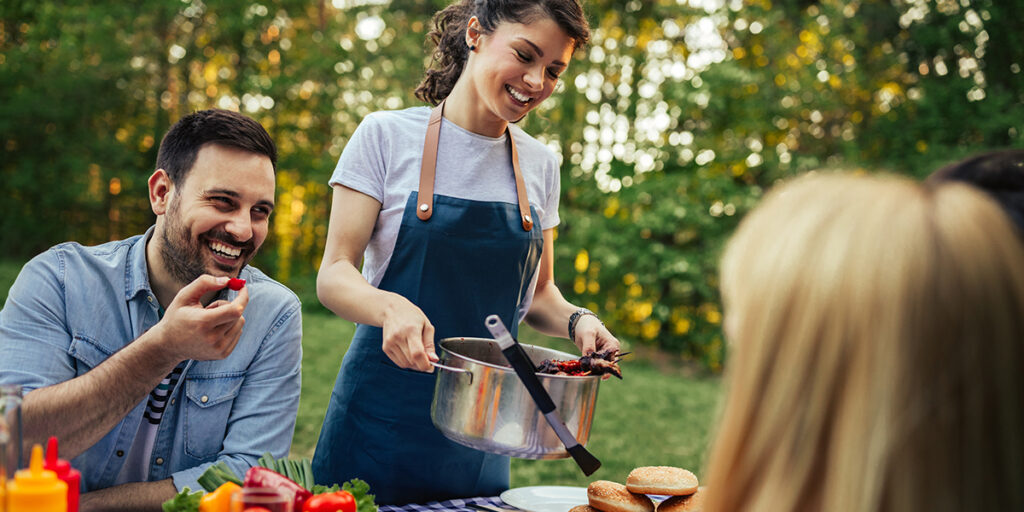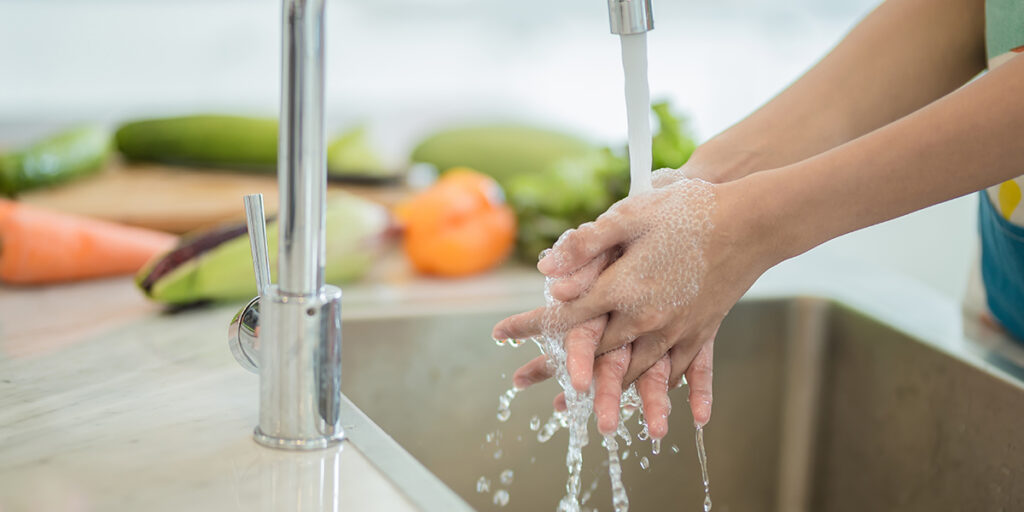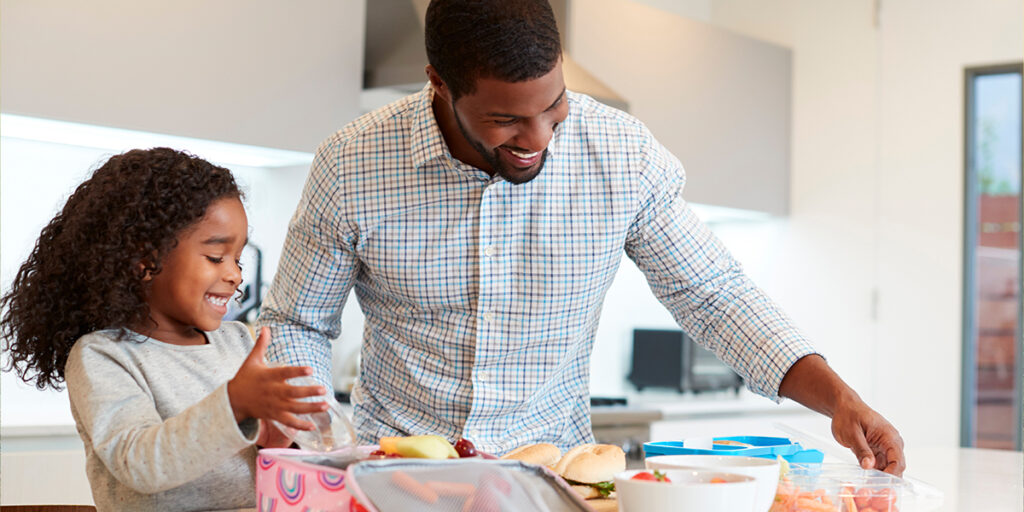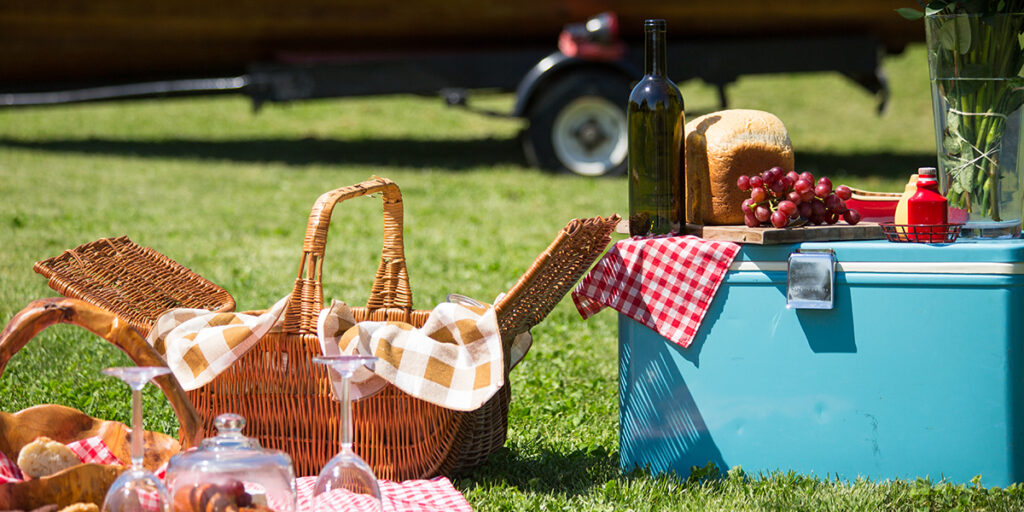Eating outdoors in the warmer months is one of life’s greatest pleasures. Barring ant and wasp attacks, who can resist a picnic or homestyle barbie with loved ones? Unfortunately, as soon as outdoor eating starts up in earnest, hospital waiting rooms and emergency clinics begin to see higher numbers of adults and children suffering from food poisoning and other stomach maladies due to improper food hygiene. It’s just too easy to forget all the rules of safe eating when the sunshine beckons.
Prepare foods safely
The risk of foodborne illness increases when the weather turns warmer because the bacteria that cause digestive upsets, including Salmonella and E. coli multiply rapidly in warm, humid conditions. Although food poisoning is usually mild, and most people recover within a few days, sometimes it can be more severe—even deadly. Children, seniors, and those with weakened immune systems are particularly vulnerable to food poisoning, so it is important to take the risk of food contamination seriously. Even if your destination is a couple of hours away, there is no reason why your food should spoil—provided it is properly prepared and transported.
Always wash your hands thoroughly before preparing food and after preparation as well, if you have been handling raw meats, poultry or fish. Remember that effective handwashing
takes at least 20 seconds and requires soap. It is not essential for the water to be warm or hot, as water that is hot enough to kill bacteria would also scald the skin.
When preparing raw meats, fish or bagged salad greens, never wash them off first. In the case of produce, it will already have been washed in a sanitizing solution at the packaging plant and won’t be made any cleaner by rinsing. Running water over raw meat, poultry and fish increases the risk of contamination as juices from the raw food can splash over your sink and counter.
Raw meat and poultry should never be marinated at room temperature. Instead, marinate it for a few hours or overnight in the fridge to tenderize and/or add flavour. If you plan to use the marinade as a sauce on the cooked food, reserve a portion of it before placing raw meat and poultry in it.
Before grilling or barbecuing meat and poultry, be sure it is fully defrosted so that it cooks evenly. Frozen poultry or meat should always be thawed in the fridge or in cold water, changing the water hourly to prevent bacteria build-up. If the food is to be cooked immediately, it may be safely thawed in the microwave.
If you will be barbecuing, never use the same plates and utensils for handling raw and cooked meats and poultry. The harmful bacteria present in the uncooked food will quickly
contaminate the safely cooked meats and cause food poisoning. This often happens with barbecue tongs, which are generally used for both purposes.
When cooking burgers, be sure that they are cooked right through. Cut them in the centre to make sure the meat does not remain pink. Charring on the outside is no guarantee that the meat inside is cooked properly.
Safe transportation
Although current restrictions due to COVID-19 mean visits to parks and beaches may not be on the agenda, it’s wise to be aware that the golden rule when transporting foods is to keep hot items hot and cold items cold. Cold foods that are allowed to warm or hot foods that are allowed to cool become breeding grounds for the bacteria that cause food poisoning.
When planning cold dishes like salads or cheese plates, remember to prepare them well in advance to enable them to be thoroughly chilled. Pack with ice, ice packs or frozen juice containers. Foods that need to be kept cold include: salads, dips, milk, cream, yogurt, creamy desserts and cakes, sandwiches, ham and other cooked meats. It is a myth that mayonnaise goes off faster than other foods that need to be kept cool.
Don’t leave food out of the fridge for more than a couple of hours, and don’t leave food in the sun. When planning a hot meal, heat it to as high as possible, then either wrap in heavy aluminum foil before placing it in an insulated container or, if it is a liquid dish, place in an insulated container, then wrap it in foil. Hot foods need to be maintained at 60°C (140°F) or hotter to prevent the growth of harmful bacteria. Take-out foods or foods cooked just before being transported to the picnic can be carried hot and should be eaten within an hour.
To keep soups and beverages hot or cold, use an insulated flask or jar. A variety of these are available at London Drugs. (Remember that these containers will only help maintain food temperature.)
Coolers should be transported in the passenger area of a vehicle, not the trunk, which can become very hot. If you are picnicking or barbecuing away from home, always place the cooler in a shaded area, such as under a picnic table or tree. Be sure to replace the top after every use and avoid repeated openings, which will let in warm air. (Whenever possible, pack beverages and perishables in separate coolers.)
Read other articles in our Spring-Summer 2020 volume of our Bettercare magazine here.





